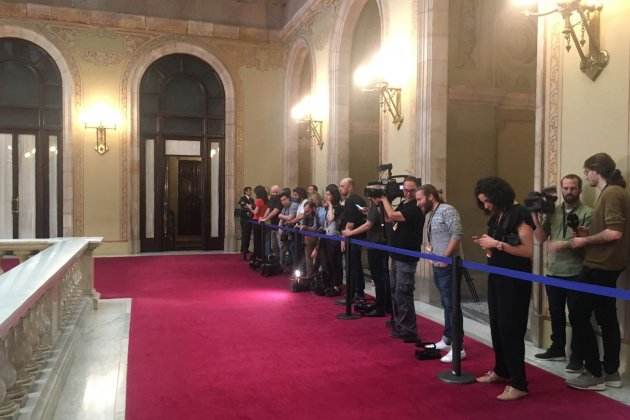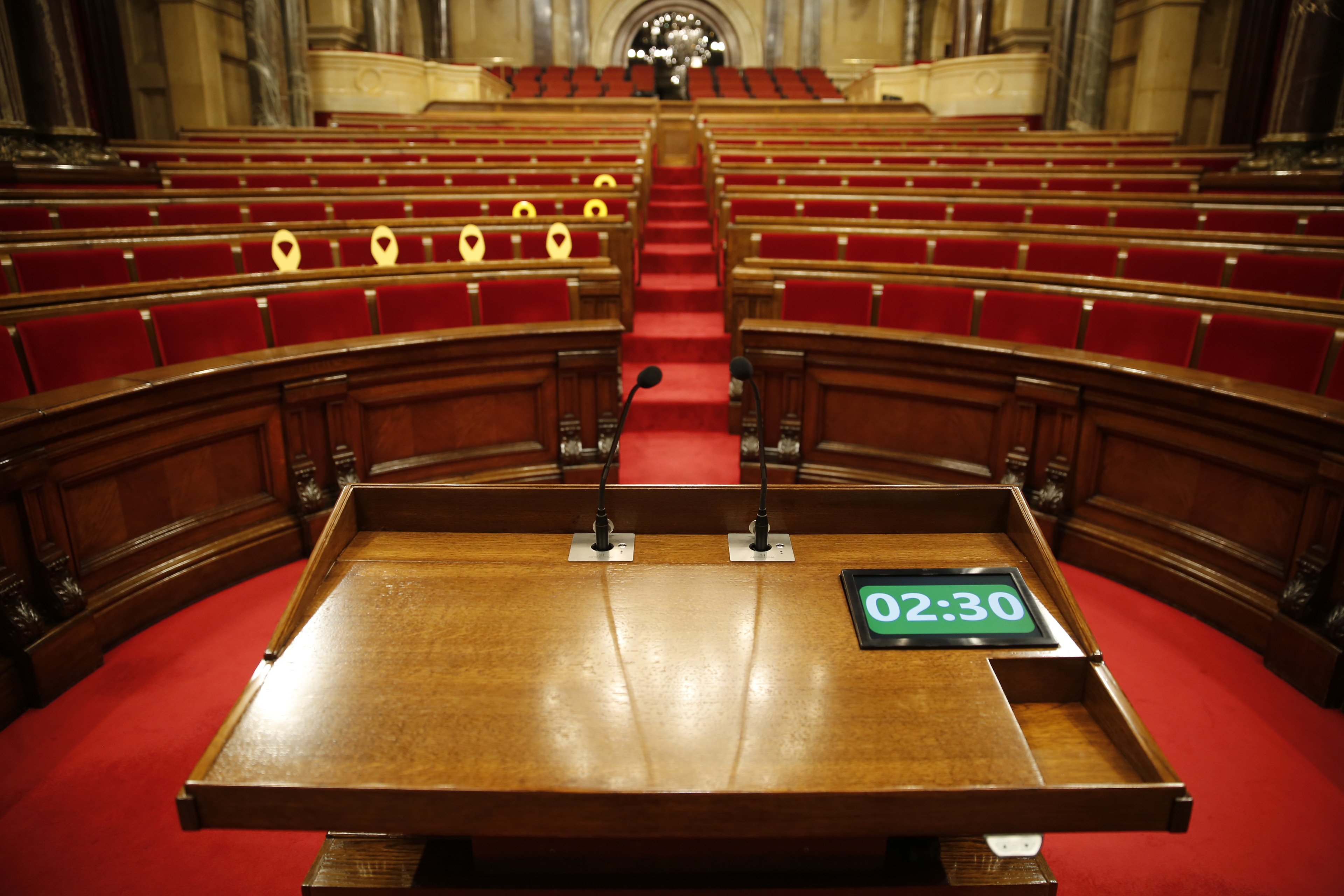The inter-party meetings between Catalan political groups to try to reach an agreement that will allow the new Parliament of Catalonia to be set up are accelerating and beginning to acquire shape as the March 12th deadline for the constitution of the new House draws closer. Two of the three pro-independence parties in Parliament, Junts (Together for Catalonia) and the CUP (Popular Unity Candidature), have held a new meeting this Wednesday afternoon to try to bring their positions closer. In a WhatsApp message, Junts explained that the meeting was used to "continue working on a legislature agreement." Sources within the negotiations say that in the next few hours there will be further contacts between the parties.
Beyond the Autonomous Communities
The CUP team reported in a press release that the two parties have agreed to work for "a pro-independence strategy that will allow the autonomous framework to be surpassed during the next legislature" - referring to the Spanish state's current structure of regional Autonomous Communities. They also pledged to "establish measures to curb the rise of the far right in the institutions and on the street," with the consolidation of the National Anti-Fascist Pact and the creation of a joint approach to deal with Vox, with the aim of reaching agreement across all political parties.
Meetings with ERC
Today's meeting between Junts and the CUP, the second since talks opened between the two parties last Thursday, was held after both Carles Puigdemont's party and the left-wingers met yesterday with the negotiating delegation of ERC (Republican Left), the largest party in the pro-independence bloc.
As happened yesterday at the meeting with ERC, today the CUP placed on the table the debate on the role of the Catalan interior ministry following the protests against the imprisonment of Pablo Hasél over the last week. The CUP delegation "conveyed the urgency of curbing repression against mobilizations and establishing shock measures to stop this dynamic and allow a 180º turn in this area".
Strategic consensus
Junts has maintained since the day after the elections that their will is to reach a legislature agreement that guarantees the stability of the new executive. The aim is now to specify the terms in which the "strategic consensus" must be framed during the legislature and the unity of political action of the partners in both the Catalan Parliament and the Spanish Congress of Deputies in aspects relating to the independence process. Precisely this morning, the strategic differences between ERC and Junts became apparent in Congress once again, as a result of the interventions of Gabriel Rufián (ERC) and Míriam Nogueras (Junts).
The Catalan Parliament's procedural body, the Bureau, which will have to be created as the new chamber is constituted, on March 12th at the latest, is emerging as one of the key issues to be cleared up very soon. The CUP, a party which consults its grass-roots membership on major strategic decisions, has called territorial assemblies to address the role that the group will have to assume, which will be decided in a political council meeting of the party this Saturday. In fact, for this Parliament, the CUP have not ruled out joining the Bureau - or even filling the key post which presides over it: the Speaker of the House.
For their part, the head of the ERC parliamentary group and member of the party's negotiation team, Sergi Sabrià, assured the SER radio network this morning that it is difficult to move forward in the agreements but there is a positive predisposition from those involved. Sabrià once again defended the "broad path" which has been proposed by the Republican Left throughout the campaign, with the incorporation of the left-wing Comuns into the new executive along with the three pro-independence parties.

Reporters outside the parliamentary chamber, 2018 / Carlota Camps
The calendar
Parliament must be constituted no later than 20 working days after the elections, that is, on 12th March at the latest. In this first session, the speaker of Parliament is elected, along with the other officials of the procedural Bureau: the two deputy speakers and the four secretaries.
An investiture vote, to choose the president who will lead the next government, must begin within ten working days following the constitution of the house. This period would end on March 26th at the latest, assuming the chamber was constituted on the last day possible. The candidate for the presidency must obtain support from an absolute majority of deputies (68 votes) on the first ballot, but in the event of not reaching this figure, a second debate and vote may be held two days later in which a simple majority (more votes for than against) is sufficient.
In the main image, the empty chamber of the Catalan Parliament / Sergi Alcázar

